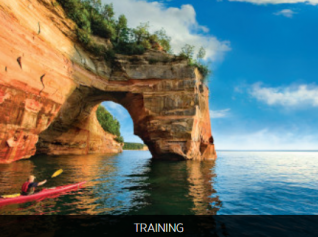Stakes High as Negotiators Begin Climate Talks in Germany

Goal to build support for $100bn a year funding and extension of Kyoto
Negotiators picked up discussions toward a new global climate treaty in Bonn, Germany this week.
The meeting was the first since the 2011 17th Conference of the Parties (COP17) in Durban where leaders initially agreed to put together a plan that would limit Earth-warming emissions. The stakes for the 10-day meeting are high—negotiators have set goals of building support for funding developing nations to the tune of $100 billion a year by 2020 and of constructing a global, legally binding climate agreement that extends the Kyoto Protocol.
While countries agreed in Durban to sign the deal by 2015, U.N. Climate Chief Christiana Figueres insisted milestones should be set in 2012.
So far, the European Union and groups of developing countries are divided over details of how the Kyoto Protocol should be extended. The talks may have inspired Qatar—one of the largest emitters of carbon—to cut its emissions and pay into the Green Climate Fund. Qatar will host the next round of annual climate negotiations in November—the first member of the Organization of Petroleum Exporting Countries to do so.
Last year’s U.N. climate talks in Durban, South Africa, agreed to develop a new protocol, legal instrument or legally binding deal by 2015 which would apply to all parties under the U.N.’s climate convention and would come into force no later than 2020.
Countries had already agreed in 2010 that deep greenhouse gas emissions cuts had to be made to keep a rise in global average temperature below two degrees Celsius above pre-industrial levels this century to avoid more extreme weather, glacier melts, ocean acidification and other harmful impacts.
But efforts so far to cut emissions are not seen as sufficient to stop a rise beyond two degrees this century.
"The ambition gap must be closed..in Doha," said Sai Navoti, lead negotiator for the Alliance of Small Island States, referring to talks scheduled for November-December in Qatar.
"Failing to close the gap immediately will lead to sginificant risks across various tipping points and global average temperature exceeding 3.5 degrees," he added.
Last November, the U.N. Environment Programme issued a report showing that the gap between current emissions cut pledges and what is needed to limit global warming is wider than ever, growing from 5-9 gigatonnes of CO2-equivalent in 2010 to 6-11 gigatonnes in 2011.
Current pledges cover around 80 to 85 percent of greenhouse gas emissions and nine economies among the world’s top 30 emitters in 2005 have not yet tabled cuts, said Justin Lee, head of Australia’s climate delegation.
"The shared collective efforts are not enough to meet the two degree goal. Countries that haven’t yet pledged, should."
The European Union has said it would cut emissions by 30 percent from 1990 levels by 2020 from the current 20 percent if other large emitters take on equally ambitious pledges but none have yet done so and the EU is now grappling with the rapid deterioration of the euro zone economy.
"People clearly do not want to talk about raising pledges with the global recession and euro zone about to collapse under its own weight," said a source who requested anonymity.
Less developed countries are also under pressure to define domestic measures to cut emissions through so-called Nationally Appropriate Mitigation Actions (NAMAs) but progress there too is slow due to lack of finance.
Such actions could include programmes to develop renewable energy, improve energy efficiency, or the uptake of electric vehicles, for example.
Although the number of NAMA initiatives has grown to 52 from 30 last year, less than five have been implemented, said a report on Monday by the German ministry for the Environment, Nature Conservation and Nature Safety and consultancy Ecofys.
The greenhouse gas emissions cuts from just 13 such programmes is expected to total around 23.6 million tonnes of carbon dioxide equivalent per year by 2020, the report showed.
"More nations should come forward with NAMAs. It is time to ask what can be done. Nothing at all is not the right answer," said Kaminaga Kaminaga, negotiator for the Marshall Islands, in the Pacific Ocean.
People’s current ways of life on those islands, which are only 2 metres above sea level, could be under threat even if seas rose a metre this century as glaciers and ice caps melt due to global warming.
"There is no higher ground and nowhere to relocate," Kaminaga warned.
Sources: Huffington Post/National Geographic/Reuters
Valere Tjolle
Keep up with the latest sustainable tourism info, special offers HERE
 United Kingdom
United Kingdom United States
United States Asia Pacific
Asia Pacific












































EU airports bring back 100ml liquid rule
CLIA: Anti-cruise demos could cause itinerary changes in Europe
Co-pilot faints, easyJet flight issues ‘red alert’
Dozens fall ill in P&O Cruises ship outbreak
Woman dies after getting ‘entangled’ in baggage carousel